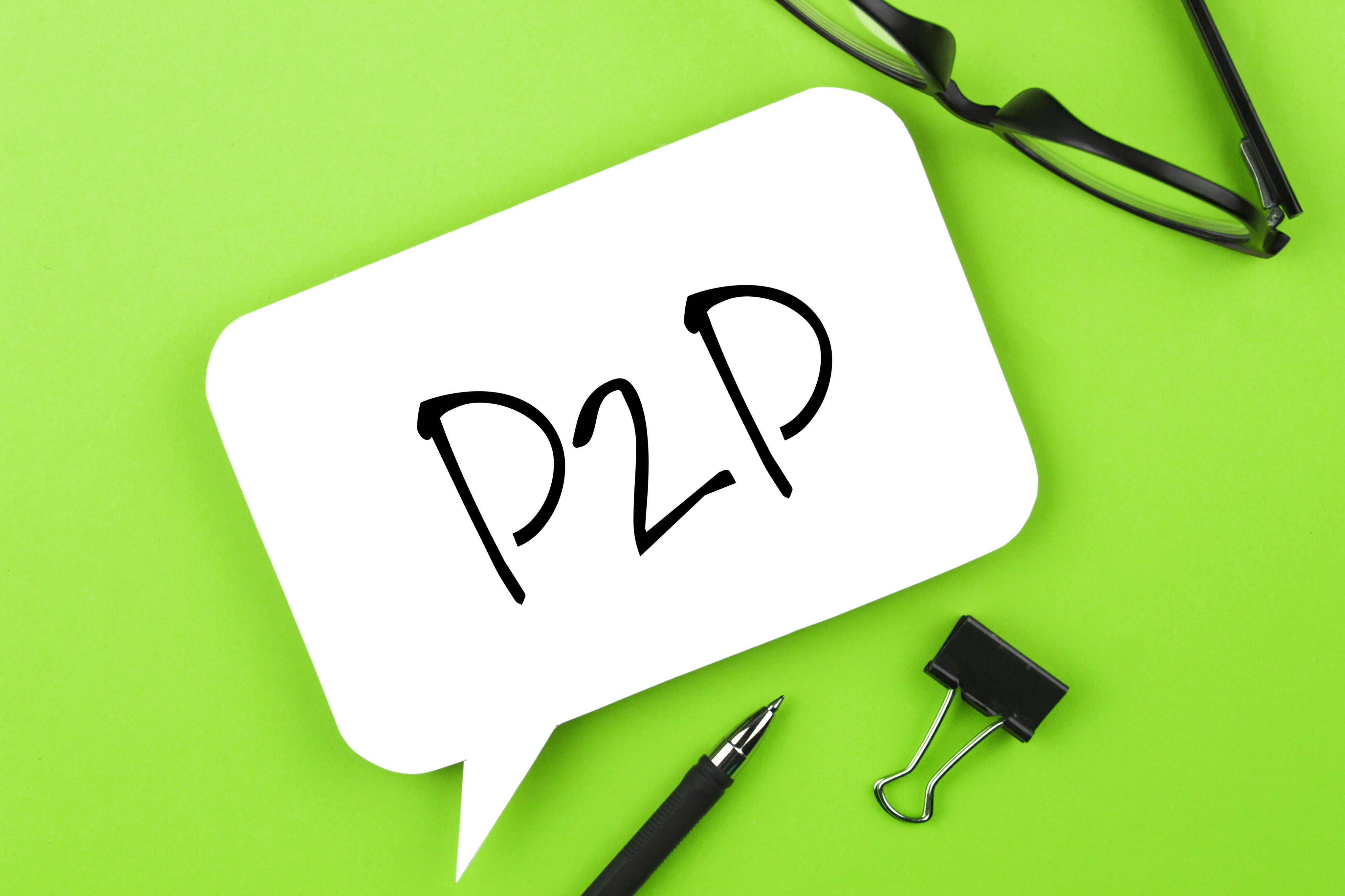Peer-to-Peer Business Models: What You Need to Know Before You Jump In
Peer-to-Peer Business Models: What You Need to Know Before You Jump In

Peer-to-peer (P2P) business models have revolutionised the way we conduct commerce by enabling individuals to directly exchange goods and services with each other without the need for intermediaries. P2P models have disrupted traditional industries by empowering individuals to share assets like homes, cars, and tools, which has led to the emergence of the sharing economy. With the rise of platforms like Airbnb and Grab, P2P business models have become an integral part of our daily lives and have transformed the way we think about ownership and consumption.
P2P business models offer many benefits, including lower costs, increased efficiency, and greater flexibility. By cutting out intermediaries, P2P platforms can offer lower prices to consumers while still providing a high-quality service. For example, platforms like Uber and Lyft have disrupted the taxi industry by providing consumers with a more affordable and convenient alternative to traditional taxis. P2P models also offer greater flexibility, allowing individuals to earn money on their own terms by sharing their assets or skills with others. This has led to the emergence of the gig economy, where individuals can work on a freelance basis and earn money through P2P platforms.
History Time!
Peer-to-peer (P2P) business models have a fascinating history that can be traced back to ancient times when people traded goods and services directly with each other. However, with the rise of large corporations and intermediaries, this model fell out of favour until the late 1990s when P2P resurfaced with the rise of the internet and file-sharing platforms like Napster and Kazaa. Despite the challenges faced by early P2P platforms, the concept continued to evolve, and new P2P business models emerged in the early 2000s with the launch of platforms like Craigslist and eBay. In the mid-2000s, the sharing economy emerged as a new wave of P2P business models that enabled individuals to share assets like cars, homes, and tools with each other for a fee. Today, P2P business models continue to thrive and disrupt traditional industries, with platforms like Uber and Airbnb becoming household names and changing the way we think about commerce and ownership.
One of the main criticisms is that they often operate in regulatory grey areas, which can lead to concerns about safety, quality control, and consumer protection. For example, in the case of Airbnb, there have been concerns about the safety and quality of listings, as well as the impact on local communities and the housing market. Despite these challenges, P2P business models have proven to be incredibly popular and successful, with many platforms achieving significant growth and disrupting traditional industries. As technology continues to evolve, it will be interesting to see how P2P business models continue to innovate and transform the way we do business.
Benefits of P2P business models
Peer-to-peer (P2P) business models have gained popularity over the years due to their numerous benefits. Here are some of the benefits of P2P business models:
Cost Savings
One of the main benefits of P2P business models is that they often result in cost savings for both parties involved. For example, in the case of Airbnb, hosts can earn extra income by renting out their spare rooms or properties while guests can often find cheaper accommodations compared to traditional hotels. If you look at Grab, drivers can earn additional income by offering rides while passengers can often get cheaper fares compared to traditional taxi services.
Grab, a popular ride-hailing platform, provides an affordable alternative to traditional taxis, making it a popular choice for commuters in the city-state. According to a report by Grab, the platform has contributed over S$14 billion to the Singaporean economy and has created over 70,000 job opportunities for drivers since its launch in 2013. Passengers also benefit from lower fares compared to traditional taxis, with Grab often offering promotional deals and discounts.
Increased Access to Goods and Services
P2P business models can also increase access to goods and services that may have previously been difficult to obtain. For example, Etsy provides a platform for small businesses or individual artisans to sell handmade or vintage goods to a global audience, which may have been difficult to achieve without the help of a P2P platform. Crowdfunding platforms like Kickstarter or Indiegogo allows individuals to access funding for their creative projects or business ideas that may have been difficult to obtain through traditional financing methods.
Carousell, a popular online marketplace, provides a platform for individuals to buy and sell second-hand goods, allowing them to access items that may have been previously unavailable or unaffordable. This has led to the emergence of innovative products and services in Singapore's startup ecosystem.
Flexibility
P2P business models often offer greater flexibility compared to traditional business models. For example, in the case of Airbnb or Grab, hosts or drivers can choose when and how often they want to provide their services, giving them greater control over their schedules. This gives them greater control over their schedules and work-life balance.
Personalisation
P2P business models often offer greater personalisation and customisation compared to traditional business models. Airbnb, for example, allows hosts to offer unique accommodations that may not be available through traditional hotels, allowing guests to have a more personalised experience. This has led to the emergence of a trend known as "bleisure" travel, where travellers combine business and leisure travel and seek out unique and personalised accommodations. In Carousell, customers can find unique second-hand goods that may not be available through traditional retailers, allowing them to find great deals that suits their budget.
Disadvantages of P2P business models
Peer-to-peer business models have their fair share of challenges and drawbacks that companies must consider before adopting it. Here are some of the key disadvantages:
Lack of Regulation

One of the main drawbacks of P2P business models is the lack of regulation and oversight compared to traditional business models. For example, in the case of Uber, there have been concerns about driver background checks, insurance coverage, and passenger safety. Similarly for Airbnb, there have been concerns about hosts not adhering to local regulations or zoning laws, which can lead to complaints from neighbours or fines from local authorities.
In Singapore, the lack of regulation in P2P business models has also been a concern. In 2019, the Land Transport Authority (LTA) announced that it would be regulating private car hire booking services, such as Grab and Ryde, to ensure safety and fair competition. The move came after concerns were raised about safety standards and insurance coverage for passengers. Additionally, there have been concerns about the lack of regulation for short-term rentals in Singapore, such as those offered through Airbnb, which may not adhere to local zoning laws and regulations.
Quality Control
P2P business models can also present challenges in terms of quality control. For example, in the case of Carousell, there have been concerns about counterfeit or low-quality products being sold on the platform. Another example is Airbnb, there have been concerns about the cleanliness or safety of some properties, which can lead to negative reviews or complaints from guests.
In 2020, Carousell, a popular P2P marketplace app in Singapore, came under fire for allowing the sale of counterfeit products on its platform. The company responded by implementing stricter policies and guidelines for sellers to ensure the authenticity of their products.
Trust Issues
P2P business models often rely on trust between parties, which can be difficult to establish and maintain. For example, in the case of crowdfunding platforms, there have been instances of fraudulent campaigns or projects that were never completed, leading to distrust among backers. For freelance or gig economy platforms, there have been instances of clients not paying for completed work, leading to distrust among freelancers.
Trust issues are also a concern in Singapore's P2P business models. In 2020, the Singapore police issued a warning about scams on Carousell, where buyers were deceived into making payments for items that were never delivered. The platform responded by improving its safety features and implementing stronger seller verification processes. Additionally, in the case of freelance or gig economy platforms like Fiverr, there have been instances of clients not paying for completed work, leading to distrust among freelancers.
Peer-to-Peer Business Models VS Marketplace Business Models?
In a marketplace model, the platform acts as an intermediary between buyers and sellers, whereas in a peer-to-peer model, the platform connects individuals directly with each other to exchange goods or services.Here are some differences between the two models:
Intermediary role
In a peer-to-peer model, the platform simply facilitates the exchange between individuals. In a marketplace model, the platform takes a more active role in managing the transaction, such as by processing payments, managing logistics, or providing customer support.
Ownership
The key difference between the peer-to-peer (P2P) business model and the marketplace model is the ownership of the assets being exchanged. In the P2P model, individuals directly share or rent out their own assets or services to others, while in the marketplace model, a platform connects buyers and sellers, but does not own the goods or services being exchanged.
For example, in the P2P model, Airbnb allows individuals to rent out their homes or apartments to others, while in the marketplace model, platforms like Lazada or Qoo10 connect buyers and sellers of goods, but do not own the items being sold.
Pricing
Another difference is the level of control and involvement in the transaction. In the P2P model, the individual owners of the assets or services have more control over the terms of the exchange, such as pricing, availability, and conditions. In the marketplace model, the platform may set certain rules and policies for the exchange, such as fees, shipping requirements, and dispute resolution.
Car owners can also rent out their vehicles to others using platforms like Drive Lah and Tribecar. These P2P businesses offer individuals a way to earn extra income from their own assets or services, while also providing a more affordable and sustainable option for consumers.
Key tools that business owners should consider when implementing a P2P business models
Implementing a peer-to-peer business model can be an exciting and innovative way to start or grow a business. In this section, we will explore some of the key tools that business owners should consider when implementing P2P business models:
P2P Platforms
One of the most important tools for implementing a P2P business model is the platform itself. These platforms act as intermediaries, connecting buyers and sellers, hosts and guests, or drivers and passengers. Some of the most popular P2P platforms include Airbnb, Uber, and Grab. When selecting a platform, it is important to consider factors such as ease of use, fees, and the level of support offered to users.
Payment Processing Tools
Platforms such as PayPal and Stripe can help facilitate transactions between buyers and sellers, while also providing secure and reliable payment processing. It is important to consider the fees associated with each payment processing tool and to choose one that best suits the needs of your business.
Identity Verification Tools
In order to build trust between users, it is important to implement identity verification tools. These tools can help ensure that users are who they say they are, reducing the risk of fraud or scams. Examples of identity verification tools include Jumio.
Rating and Review Systems
P2P business models rely heavily on trust between users. One way to build trust is by implementing a rating and review system, where users can rate and review their experiences with each other. Platforms such as Airbnb and Uber have built-in rating and review systems that allow hosts and drivers to build their reputations based on feedback from guests and passengers. Implementing a rating and review system can help increase transparency and build trust between users.
Insurance and Liability Coverage
P2P business models can present unique challenges in terms of insurance and liability coverage. For example, in the case of Airbnb, hosts may be liable for damages or injuries that occur on their property. It is important to carefully consider insurance and liability coverage when implementing a P2P business model. Platforms such as Airbnb and Uber offer some level of insurance coverage for hosts and drivers, but it is important to understand the limitations of these policies and to consider additional coverage as needed.
Legal Advice

Implementing a P2P business model can also present legal challenges. It is important to seek legal advice when developing your business model and when navigating legal issues that may arise. For example, Airbnb hosts may need to adhere to local regulations and zoning laws. Seeking legal advice can help ensure that your business is compliant with relevant laws and regulations.
Closing Words!
The peer-to-peer business model has revolutionised the way people interact and conduct business in the modern economy. It offers numerous benefits such as cost savings, increased access to goods and services, flexibility, and personalisation. However, it also presents challenges such as the lack of regulation, quality control issues, and trust issues that need to be addressed to ensure a sustainable and successful business model.For business owners looking to implement P2P models, it is important to consider the various tools available to facilitate the process. From P2P platforms such as Airbnb and Grab to payment processing tools like PayPal and Stripe, these tools offer the necessary infrastructure to connect buyers and sellers, streamline transactions, and establish trust and credibility within the community.
As technology continues to evolve and disrupt traditional business models, P2P platforms will continue to play a crucial role in driving innovation and creating new opportunities for businesses and consumers alike. By embracing this model and leveraging the available tools, business owners can tap into a global market and connect with customers in new and exciting ways, while also contributing to the growth and evolution of the modern economy.

